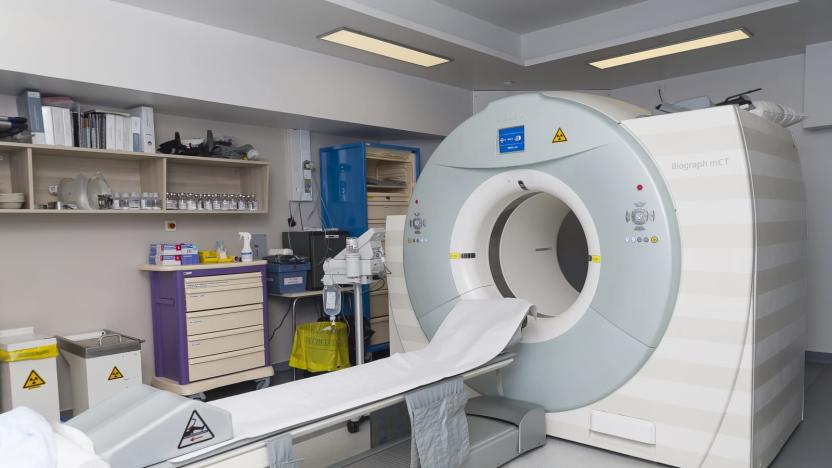AlzheimersDisease
Latest

Researchers train AI to spot Alzheimer’s disease ahead of diagnosis
While Alzheimer's disease affects tens of millions of people worldwide, it remains difficult to detect early on. But researchers exploring whether AI can play a role in detecting Alzheimer's in patients are finding that it may be a valuable tool for helping spot the disease. Researchers in California recently published a study in the journal Radiology, and they demonstrated that, once trained, a neural network was able to accurately diagnose Alzheimer's disease in a small number of patients, and it did so based on brain scans taken years before those patients were actually diagnosed by physicians.

Researchers have engineered monkeys with Parkinson's disease
Scientists in Japan have successfully bred a set of genetically modified marmosets with Parkinson's disease, Alzheimer's disease and motor neurone (Lou Gehrig's) disease, The New Scientist reports today. The development could lead to major breakthroughs in the treatment of neurological disorders.

'Amnesiac' mice made to remember what they forgot with blue light
Mice with amnesia were able to recover training memories with assistance from blue light, in research that suggests that memories lost in brain trauma could still exist (and perhaps even be recalled) from the human brain. It marks the first time scientists were able to suppress a memory and then bring it back. The research focused on retrograde amnesia, which affects the ability to form memories after a brain injury, or recall what happened before the accident. The group trained two mice teams to remember that one room would deliver a mild electric shock when entered into. Afterwards, placing the mice in the room would cause this reaction without even delivering the shock. Researchers then identified which neurons were active in mice brains when they froze at being in the shock room. labelling those cells with a protein sensitive to blue light, and using a virus to get it where they wanted it. When blue light hit these "memory engram cells" the mouses experienced the same shock — and froze up.

Ultrasound helps destroy Alzheimer's-causing plaque in mice
Alzheimer's is a degenerative disease often characterized by severe memory loss, and even though it affects more than 5 million people in the United States (with an uptick expected as the Baby Boomer generation ages), it remains notoriously difficult to treat. The University of Queensland reports an Australian research team recently took an encouraging step toward possible treatment by sending ultrasound waves at the brains of mice with Alzheimer's. In 75 percent of the mice, the waves broke up clusters of an amyloid beta plaque that contributes to the disease's progression, and these mice performed better on subsequent memory and spatial recognition tests.

Scientists restore memory of drugged rats, hope to do the same with people
Is there anything we can't learn from drugged up rats? Researchers at Wake Forest University and the University of Southern California used a group of medicated rodents to demonstrate a method by which memory can be restored with the flick of a switch. The rats were outfitted with tiny, rat-sized electrodes and exposed to pharmacological substances, which caused them to forget the connection between pushing a lever and getting water. By turning the electronic switch on, the scientists restored the rats' memory of the task -- turning it off made them forget again. The next step in the process is testing the experiment out on primates and perhaps some day utilizing the research to benefit victims of strokes, Alzheimer's, or injury-induced memory loss.

RFID network used in the fight against Alzheimer's
The problem with diagnosing Alzheimer's and other forms of dementia is that by the time someone presents symptoms, it is generally rather late in the game. Looking for a way to detect the affliction earlier on, researchers at the University of South Florida have developed a wireless network for use by senior living centers. Utilizing a series of receivers placed strategically around the building and RFID transponders worn on the wrists of patients, the system monitors people's walking patterns, looking for actions characteristic of cognitive decline -- including a tendency to wander, to veer suddenly, or to pause repeatedly. So far the study has found a statistical relationship between abnormal walking patterns and people for whom testing indicated dementia. The next step is to take that data and look for ways to predict the disease. Good luck, kids -- and hurry up. We ain't getting any younger 'round here.

JHU researchers create self-assembling organic wires
Once more it looks like Johns Hopkins has taken humanity a step closer to full-blown Borg-hood. A research team at the school has created water-soluble electronic materials that spontaneously assemble themselves into wires some 10,000 times smaller than a human hair, for potential uses that include regulating cell-to-cell communication, re-engineering neural networks, repairing damaged spinal cords and transforming individuals into cybernetically enhanced drones. The researchers also point out that the self-assembly principles used to create the nano-scale wires are based on those of beta-amyloid plaques (which have been associated with Alzheimers), so the research may someday lead to a better understanding of the disease. This is definitely good news, but we can't help but think that once we've been assimilated into the hive mind Alzheimer's will be the least of our concerns.[Via TG Daily]



